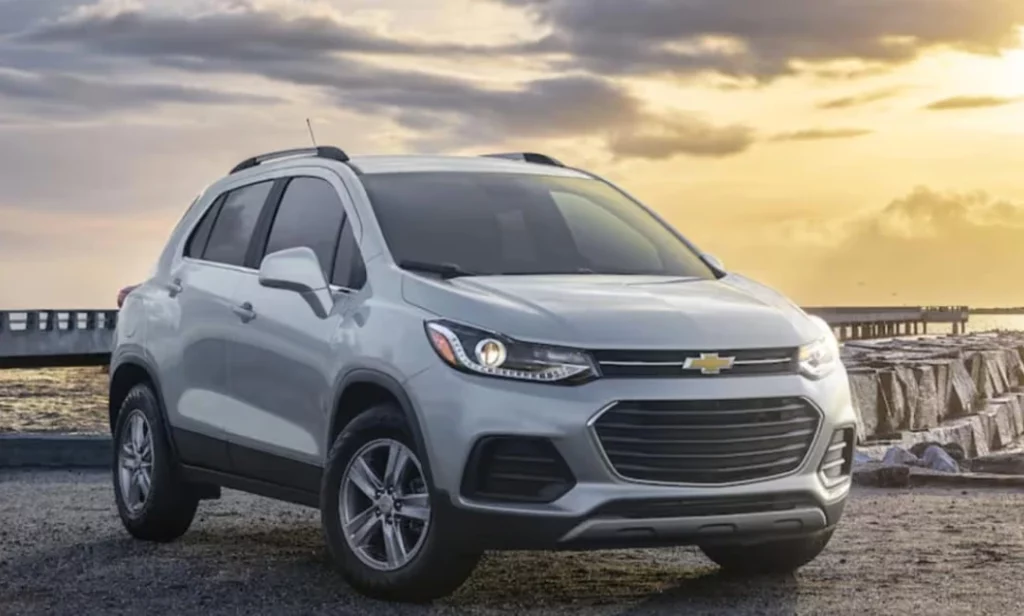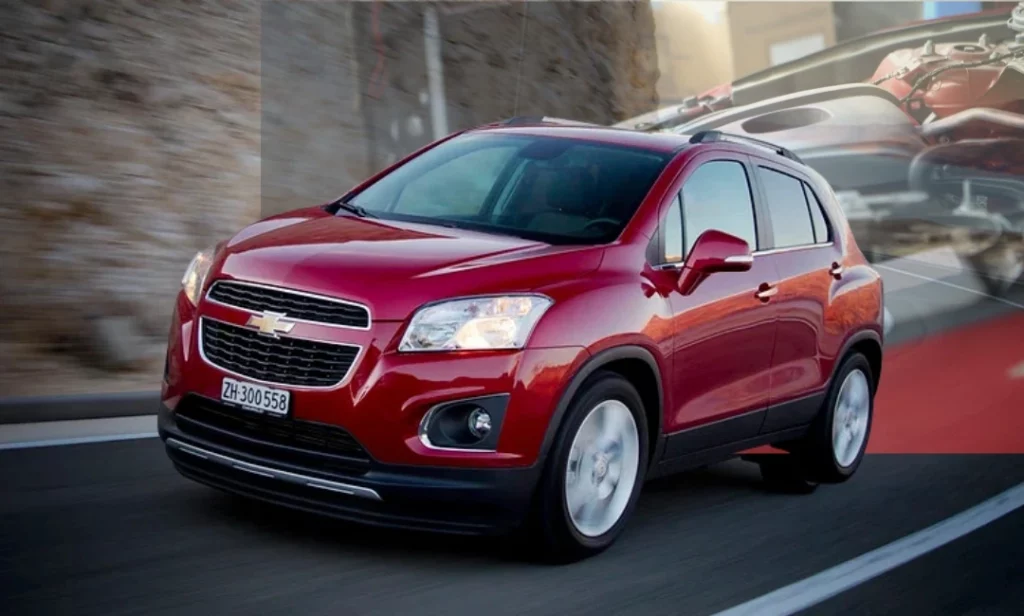If you are exploring your options in the used car market and you find the bold Chevy Trax a worthy option, you are not alone. This compact SUV is a popular choice among city drivers, first-time car owners, and budget-conscious buyers.
Trax gains so much attention because it offers a valuable blend of practicality, affordability, and capability. The stylish outlook and top-tier performance further enhance the list. You can find all these features in almost every release of the model, from 2013 to the present year launch. However, not every model year delivers the same level of reliability.
Some years of Chevrolet Trax are infamous for recurring problems, costing their owners thousands in repairs. What’s worse is that these are not just some minor quirks. You may encounter issues such as engine failures, transmission problems, and electrical malfunctions.
Thus, you can clearly see that you can not be reckless and just go for any model presented to you. You need to be extra cautious, and this blog is here to help. In this guide, we will explore Chevy Trax years you should avoid, specific issues related to each, and which releases are most reliable and actually worth your time and money.
What Chevy Trax Years To Avoid?
If you want to ensure that the family-friendly Trax, which is excellent value for the price, creates no trouble for you, I recommend you avoid the following release years:
- 2015
- 2016
- 2017
- Early 2018 models
- 2024–2025 (cautious watchlist)
All these years are flagged by owners, mechanics, and industry experts for serious reliability issues, ranging from transmission failures to electrical malfunctions.
How We Identified the Problem Years
To pinpoint the worst Chevy Trax model years, we reviewed owner-reported experiences, recurring major issues, and official recall data from the National Highway Traffic Safety Administration (NHTSA). The table below summarizes the key safety issues and recalls associated with each year.
| Model Year | Issued By | Reason for Recall |
| 2015 | NHTSA | Radio chime failure, tire placard errors, and other minor safety issues |
| 2016 | NHTSA | Radio chime issues and tire information errors |
| 2017 | NHTSA | Radio chime issues and safety system alerts |
| 2018 | NHTSA | Component safety defects including electrical system concerns |
| 2019 | NHTSA | Electrical and mechanical safety concerns |
| 2020–2023 | None Reported | No major recalls publicly issued |
| 2024 | Chevrolet / NHTSA | Virtual Cockpit display may go blank due to software glitch |
Problematic Chevy Trax Years You Should Avoid In 2025

Chevrolet introduced Trax in 2013 as an affordable option in the compact and subcompact SUV segment. With a starting price of around $20,000, it was a perfect car for people looking for space but can not afford extravagantly.
The first two years were great for the model, with little to no trouble for the buyers. However, as the third year of production rolled out, complaints started pouring in, and that too in consecutive years, creating tough times for Chevrolet.
While the automaker has worked wonders with the second generation, the first generation remains problematic.
1. 2015 Chevy Trax
Major Issues:
- Turbocharger failure
- Infotainment malfunctions
- Sensor glitches (including camshaft position sensor)
- Estimated Repair Costs: $1,000–$3,500
- Recalls: 3
2015 is the problematic Trax year that you should avoid no matter how good the deal seems. Over the years, multiple owners have reported a loss of power, especially during high-speed drives (like highway cruising), which generally arise due to faulty turbochargers or bad sensors.
One owner even reported how the turbo engine on their 2015 Trax went out within less than two years of the purchase and only over 60,000 miles on it. He had to replace the engine, costing him about $1,200 out of pocket, truly a bad purchase. Sensor glitches were also worse, causing the vehicle to stall or abruptly come to a halt while on the road. This year saw a total of 3 NHTSA recalls, including a critical seat frame welding issue.
2. 2016 Chevy Trax
Major Issues:
- Transmission slipping
- Rough idling and stalling
- HVAC (heating/cooling) failures
- Estimated Repair Costs: $1,500–$4,000
- Recalls: 5
Chevrolet handled some of the issues associated with the previous year but was unable to make the new one any better. This particular model year holds the worst repair record, according to CarComplaints. Many owners have faced transmission giving out before 80,000 miles and requiring part replacement and costing $1,500 to $4,000.
One verified NHTSA report notes that the vehicle would always jerk and hesitate when shifting into third gear, causing some people to face near-death experiences. What’s even worse is that this model year does not know how to stop when it comes to creating issues.
The amount of transmission replacement from this year is way more than any other year. It is a repeat job that will easily cost you $1,500 to $4,000 during every repair. The five recalls are more than enough to tell how financially dangerous this year can be.
3. 2017 Chevy Trax
Major Issues:
- Electrical system failures
- Dead batteries even after replacement
- Touchscreen and rearview camera bugs
- Estimated Repair Costs: $800–$2,500
- Recalls: 4
Another year to avoid even when you are in dire need of a car is 2017. This year, there have been frequent complaints regarding infotainment screen blackouts, malfunctioning backup cameras, and persistent battery drain issues. For a vehicle that comes loaded with modern and advanced electronics, that’s a serious usability flaw.
This was not it. There are several scenarios where the car batteries kept dying even after professional replacement, causing not only financial but also mental burdens. One owner on an online forum shared how their 2017 Trax would randomly shut off mid-drive. It turned out to be an electrical grounding, but they spent weeks and hundreds of dollars diagnosing it.
Just the thought of the rearview camera going off or the touchscreen getting a blackout sends chills down my spine. It is not only annoying but life-threatening, especially when driving in heavy traffic or at night.
In addition to these, this year also suffered from power steering and airbag module problems, for which even a recall was issued.
4. 2018 Chevy Trax (Early Models)
Major Issues:
- Lingering electrical glitches
- Minor engine warning light triggers
- Estimated Repair Costs: $600–$1,200
- Recalls: 2
By this year, Chevrolet was able to handle some of the worst reliability flaws that were making Trax owners miserable. The NHTSA complaints were down to 80, and there were only 2 recalls. While this year is way better than its predecessors, its early builds are still not a suitable option for purchase, mainly due to carryover issues related to software and electrical components.
The models suffered from severe electrical issues that made both mechanical and entertainment parts shut down completely. The online forums are filled with people explaining how their ride would just completely give out in the middle of the road, causing chaos and embarrassment.
Engine stalling and losing electrical power were other issues that reduced the popularity of Trax. This year was also plagued by suspension problems, leading to a recall. It turned out that the problem was arising due to the improper welding of the front suspension of the SUV. This made it harder for drivers to steer, increasing crash risk.
5. 2024–2025 Chevy Trax (Cautionary Mention)
So far, the redesigned, second-generation 2024 to 2025 models have received nothing but positive early reviews from buyers as well as industry experts. While these are not exactly the bad years, there have been some isolated reports related to infotainment bugs and intermittent engine hesitation.
There are also some reports regarding software resets and mild engine lag under load. This is a rare occurrence and nothing extreme to worry about.
In short, the appearance of such cases is limited for now and is covered under warranty. However, it is still wise to keep an eye on how these models age.
Problems That Make These Chevy Trax Years So Risky

The period from 2015 to 2017 turned out to be extremely problematic due to the rushed production cycle, limited platform upgrades, and widespread parts supplier issues. The company focused on positioning Trax quickly in the compact or subcompact SUV market, losing focus on quality control.
The most common problems that made their way into the Trax models were related to:
- Turbocharger design flaws
- Transmission tuning issues
- Inconsistent electrical grounding
However, simply knowing the names of problems will not cut it. You need to understand exactly what things you can encounter to decide whether you actually want this ride or look for another reliable SUV on the market.
Inconsistent Electrical Grounding
Almost every model from the worst years of Trax suffered from inconsistent electrical glitches, affecting not only the dashboard and infotainment system but the safety camera as well. There are thousands of complaints regarding warning lights flickering on the dash and infotainment screens either crashing or going completely blank.
The true challenge came while diagnosing. As the issues were temporary, pinpointing the main cause was not possible. Some problems are easy to fix with a simple software update, while others require complicated repairs that aren’t cheap either. You can expect to pay anywhere between $150 to $1000 or more, depending on the condition of your vehicle.
Turbocharger Design Flaws
The most common headache associated with the Trax is related to its turbocharger. It causes the engine to slow down, lose its power, have poor acceleration, and unusual sounds while driving. Some buyers even had the check engine light come on abruptly, most of the time. Handling this issue can easily cost you over $900. And if your ride requires a replacement, you are looking at an expense going up to $2,000.
Transmission Tuning Issues
Another prevalent problem that made the worst Trax years necessarily avoidable is related to transmission. Several earlier models suffered from hesitant acceleration, jerks while shifting gears, and even complete transmission failure, costing up to $3,000. This one is not only expensive but also makes driving a risky event. The only good thing here is that it did not affect the suspension.
HVAC System Failing
Although not prevalent in all bad years, this particular issue was highly common in the 2016 Trax models. The air conditioning either does not perform well or does not work at all. Some vehicles even saw blower motors giving up entirely, causing serious discomfort on the road, especially when driving in warm or hot climates. The only solution was to replace the faulty blower motor resistor, requiring you to spend somewhere around $200 to $700.
Most Reliable Chevy Trax Years You Can Consider Buying
While the worst years may show Chevrolet’s Trax in a bad light, there are some other years offering much better reliability. These model years confidently showcase what this curvy-framed vehicle has to offer at its best. Owners praise these releases for their quiet cabin, predictable handling, and fewer shop visits.
So, if you are still fixed on the thought of buying one, I recommend going for the best years of Trax.
1. 2019 Chevy Trax
The model year 2019 saw some significant updates to the powertrain and software, making it much better and safer than its predecessors. Although the major issues were not completely gone, there were many fewer complaints from the buyers. The smooth driving, fewer electrical glitches, and better-than-average reliability ratings from owners and industry experts make this a safe investment.
2. 2020 Chevy Trax
Chevrolet keeps on working diligently to handle the soul-crushing problems Trax has been giving to its owners and the results were seen in the 2020 release. The build quality was much better, the cabin now featured better quality materials, and there were no extra gaps between panels. It features the same turbocharged engine, but now it is much more reliable. Leveraging better engineering and newer software really helped the company. The driving quality was also much more stable, and there were fewer mechanical complaints, especially about the drivetrain.
3. 2022 Chevy Trax
The second-generation Trax is the best one you can invest in. While finding the 2025 model in the used market might be tough, you can easily get your hands on 2022-2024 releases. These models boast modern tech upgrades (entertainment and safety), better gas mileage, a more stylish outlook, and a better owner satisfaction score. Just like the Chevrolet Silverado, Trax has also shown what it is capable of and now has better safety and resale value.
Tips To Avoid a Bad Chevy Trax
If you want to ensure that you do not end up with a beat-up Chevrolet in your driveway, here we have some tried and tested tips that work on every pre-owned car you buy.
Run a VIN check
With the help of platforms like NHTSA, NICB, Carfax, or AutoCheck, run the VIN check of the vehicle. It will provide you with detailed information about the vehicle’s specifications, title history, past ownership, accident reports, legal status, and more.
Check for open recalls
Use the NHTSA database to learn about open recalls. It will tell you which issues in which vehicles are causing chaos and whether you should buy them.
Get a pre-purchase inspection
Take the vehicle of interest to a trusted mechanic and have it inspected thoroughly. Make sure you specifically check for the parts and issues that are highlighted as red flags over the years.
Ask for maintenance records
Maintenance records are a must. You should never buy a used car without a proper maintenance history. It will tell you if the vehicle was in any accidents over the years, what major repairs or replacements have been done on it, and more.
Consider Certified Pre-Owned (CPO) Models
If possible, look for only certified pre-owned vehicles. Compared to other rides, these ones are well-maintained and even come with some level of warranty coverage. A close acquaintance of mine owns a third-generation Tundra, which not only looks like new but also feels like it. Being CPO had them covered for the basic issues for the initial two years of the purchase.
FAQs
How long will a Chevy Trax last?
You can easily expect your Trax to last from 150,000 to 200,000 miles, but only with proper care and regular maintenance. Ensuring fluids are at their optimum level, practicing safe driving, and having professional inspections from time to time can keep your ride in its best shape for years.
Are Chevy Trax repairs expensive?
The repairs can be expensive or affordable based on which release you own. If you go for a vehicle from the years suffering from severe turbo, transmission, or electrical problems, you can easily expect to spend $200 (for minor problems) to $3,000+ (for major ones like part replacement).
Should I buy or lease my Trax?
When buying a pre-owned vehicle, buying is usually the best way to go. The upfront costs are generally cheaper, whereas leasing comes with interest and may not cover major repairs. You will have to take care of most things out of your pocket, just like in the case of buying.
Final Thoughts
The Chevy Trax is a strong subcompact SUV only if you choose the right model year. While buying the new release would be the best choice, on a tight budget, you should look for models from good years. Completely avoid the 2015-217 range and be cautious with early 2018 and even 2024–25 for now. It will not only save you from mental exhaustion but also from spending thousands on potential repair bills.
If faced with the dilemma, prioritize reliability over price. Also, do not skip inspection and test drive just because the vehicle looks good on paper. A little extra effort from your end now can save you a lot of money later.

